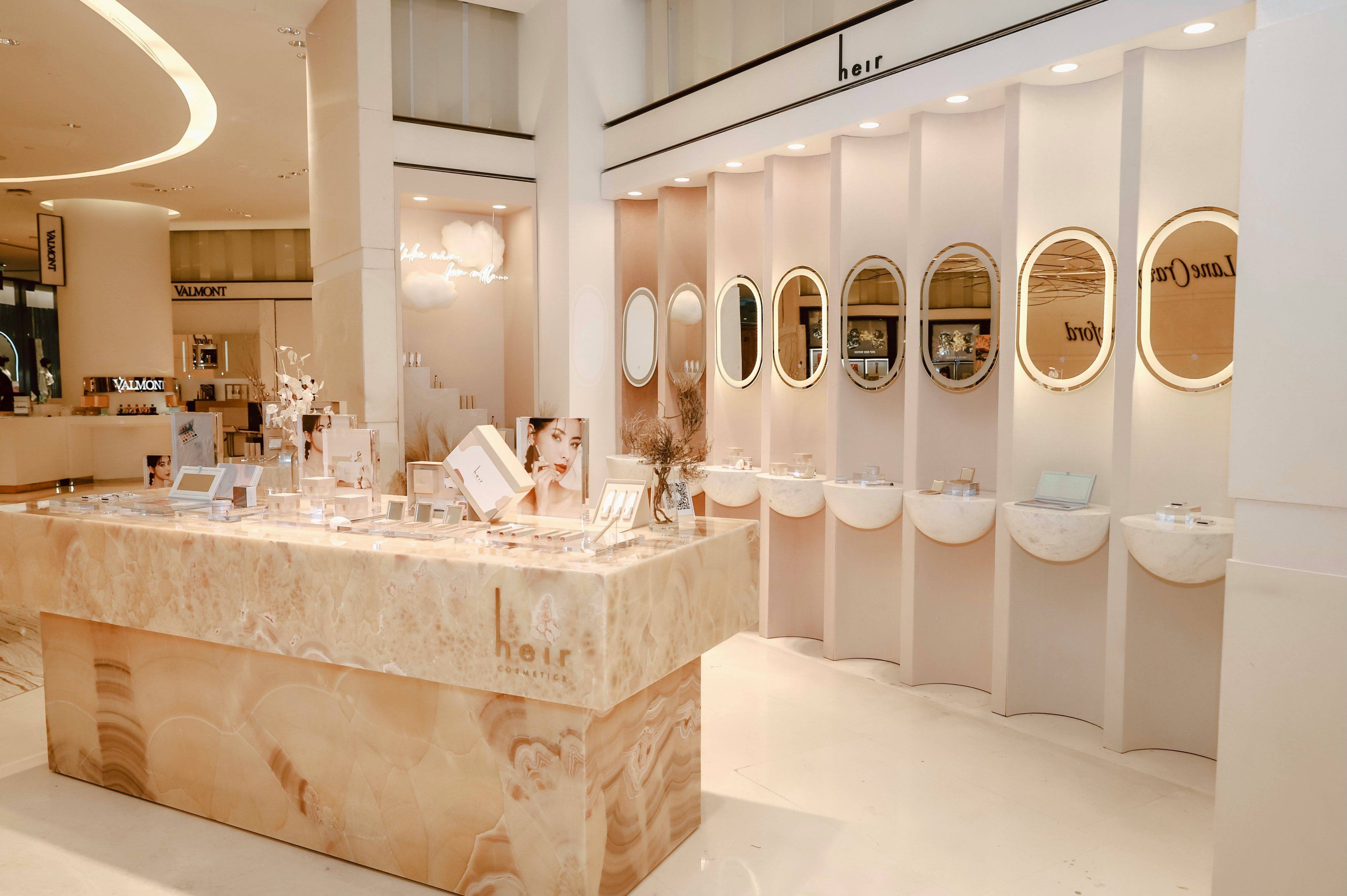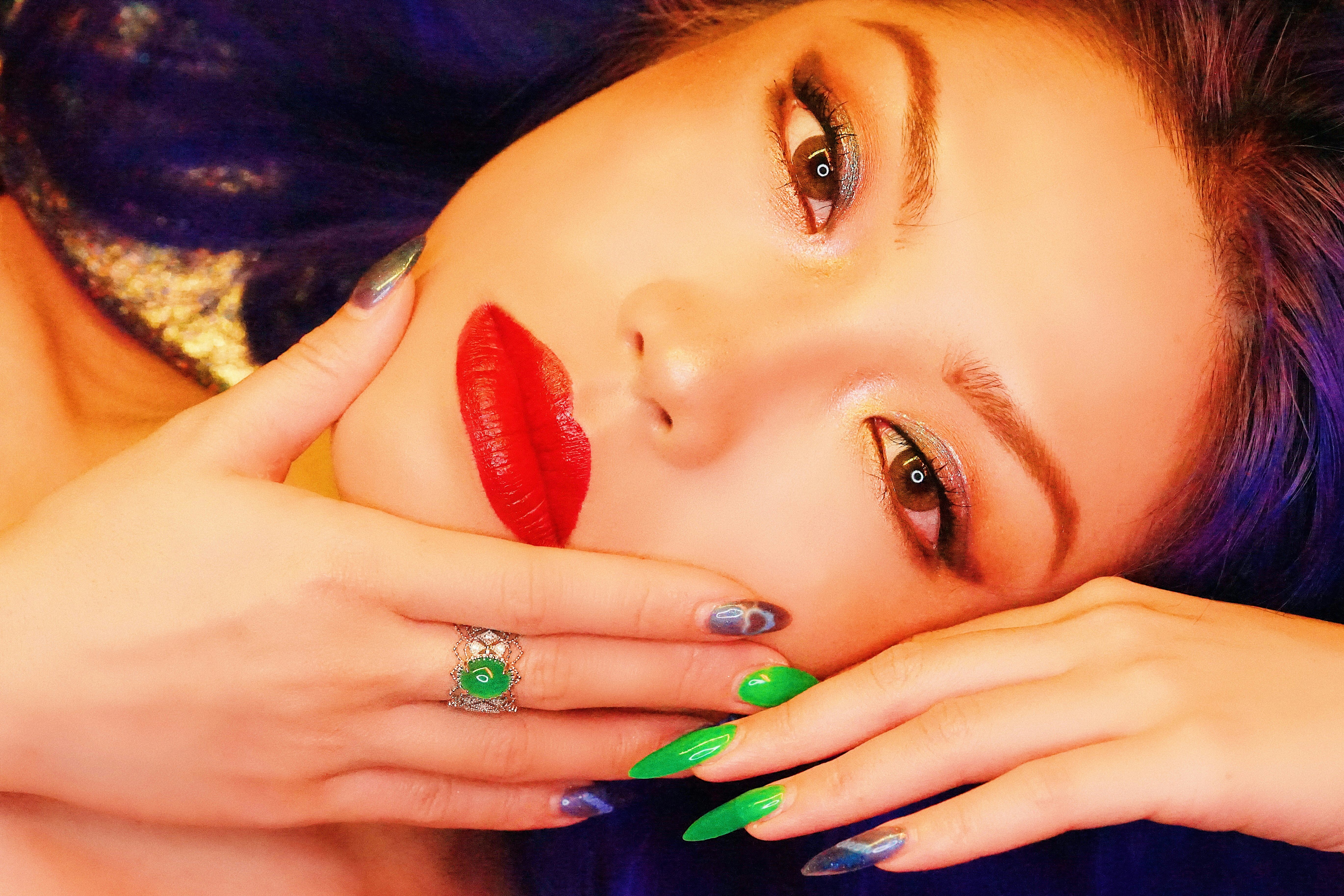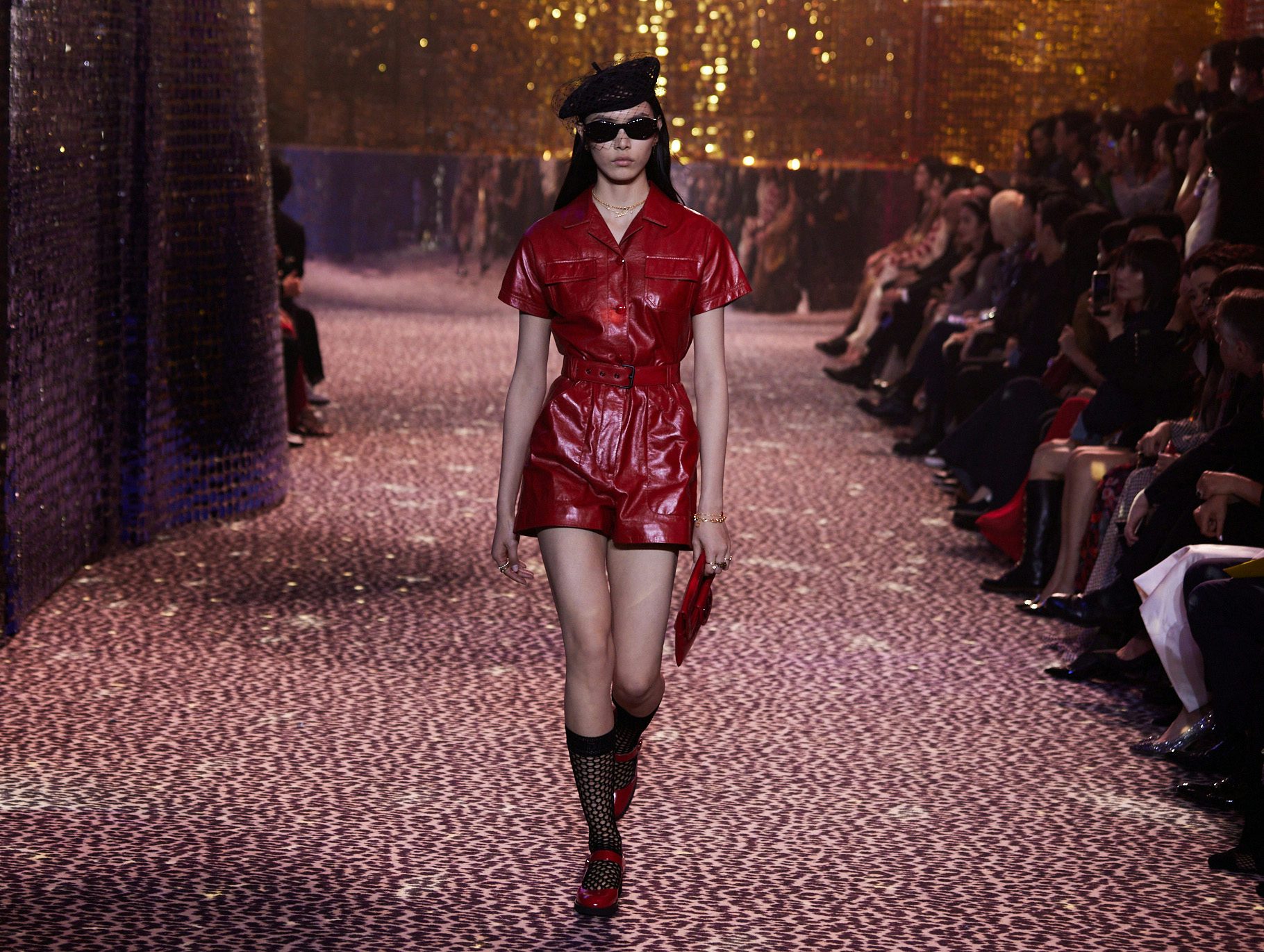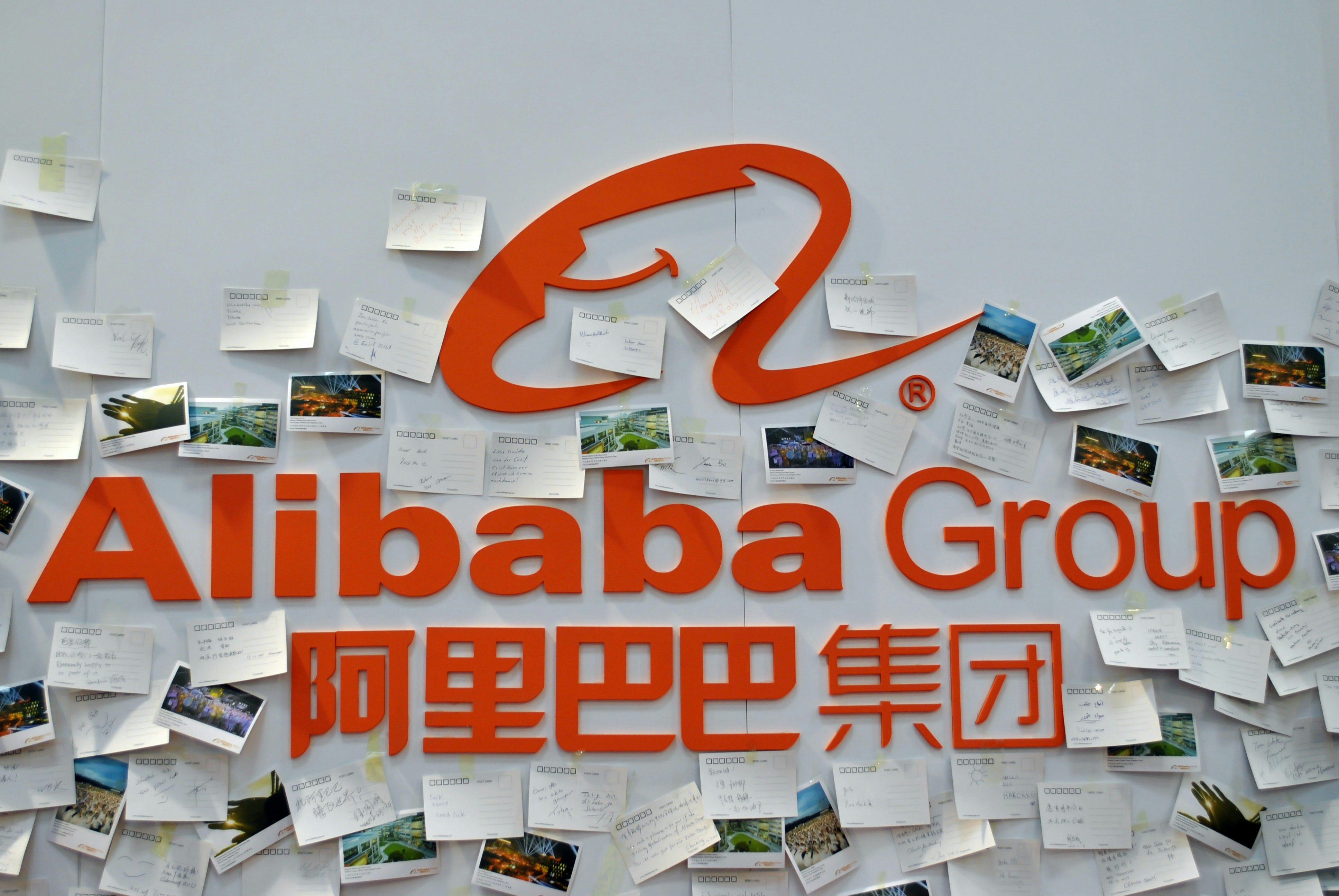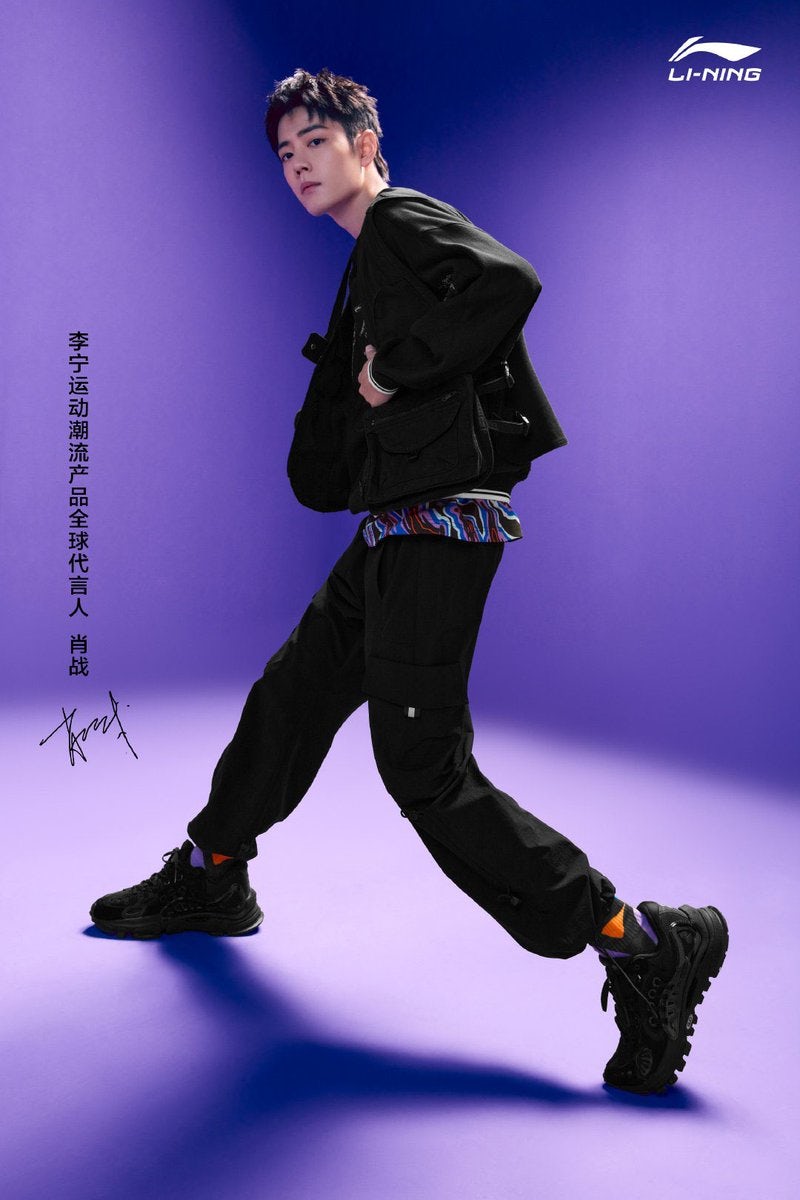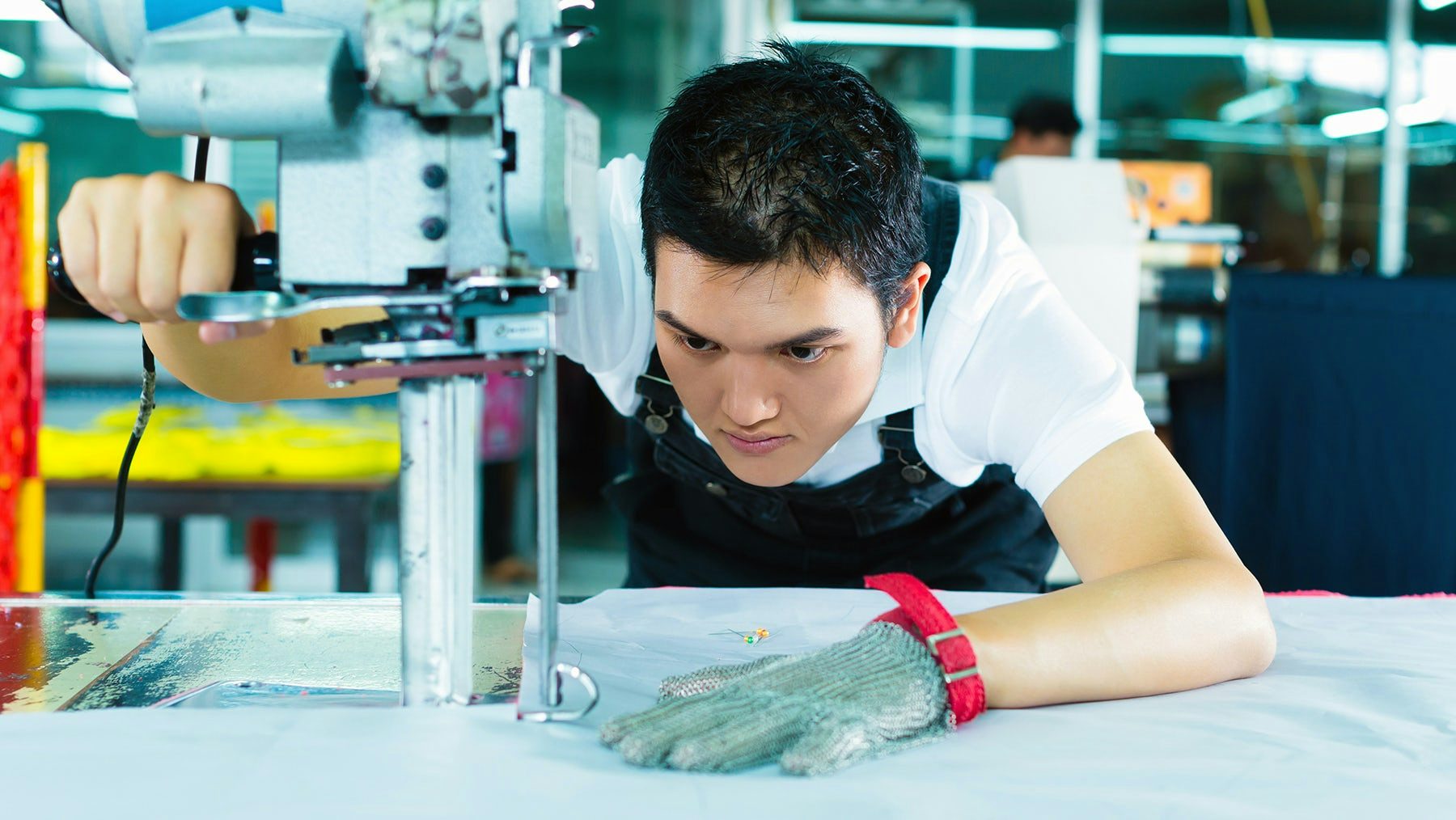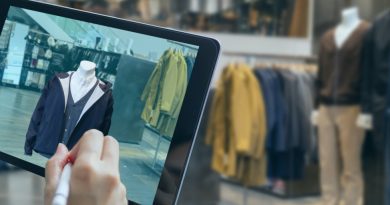Influencer Beauty Brands Are Trending in China | China Decoded, BoF Professional
The labels stocked in the beauty hall at Lane Crawford Shanghai are a proxy barometer for the hottest beauty brands among the city’s well-heeled and high-spending clientele. One of its newest additions is likely unfamiliar, even to many of these dedicated buyers.
Heir Cosmetics is the brainchild of luxury Key Opinion Leader (or KOL, as influencers are known in China), Yvonne Ching. It was snapped up to join the roster of big-name beauty brands typically found on the shelves of Lane Crawford last month, a major win for a brand that only launched last June.
The brand’s appearance in Lane Crawford, as the first from a KOL-led brand, marks a new era for influencer beauty brands in China. While beauty influencers who found fame on Western social media platforms, like Huda Kattan (Huda Beauty) and Michelle Phan (Em Cosmetics), launched their own successful brands in 2010 and 2013 respectively, China’s KOL’s have only recently started to flex their online clout to market their own beauty products.
The Heir Cosmetics display at Lane Crawford Shanghai. Heir Cosmetics.
In part, that’s because China’s beauty market has been so dominated by major international brands from Europe, the US, Japan and Korea. But China’s new generation of consumers, the so-called post-90s and post-00s generations (roughly analogous to Gen-Z in the West) is shaking up this dynamic and fuelling a boom in niche and homegrown beauty brands.
The country’s hugely powerful online personalities are leaning into the opportunity, spurring the rise of a new genre of Chinese influencer-led beauty brands.
KOL Power
The gold standard of successful KOL beauty brands to date is Croxx, a make-up brand launched by Dong Zichu — also known by the English name Benny Dong — on Tmall in 2018. The 23-year-old Beijinger, who often refers to himself as “Benny Bitch,” shot to fame for sassy and high-energy product review and make-up tutorial videos posted on video platform Bilibili and the Twitter-like Weibo. He now has more than five million fans across the two platforms.
By the end of its first year in existence, Croxx had racked up over 100 million yuan ($15.2 million) in sales. In the years since it’s consistently rated among the top makeup brands on Tmall.
Ching is hoping to leverage her already well-established personal brand to similar effect, leaning on storytelling to amplify Heir’s reach. She says things are off to a “strong start.” Beauty editors have embraced the products, giving the brand’s foundation, in particular, glowing reviews.
In the future I definitely want this brand to grow huge.
The brand’s narrative draws on Ching’s own reputation for impeccable style — the source of her social media following — and fashion heritage. Ching’s mother, Charlotte Kwock was a major presence on China’s luxury scene as a long-time executive at Dior in China. Ching says the pair dreamed of one day starting their own brand, but it was Kwock’s death from cancer in 2019 that pushed her to finally launch Heir.
Its performance has exceeded her expectations and opened up new possibilities.
“My ambition has grown [with my] confidence,” Ching said. “In the future I definitely want this brand to grow huge,” she said.
She’s not the only KOL in China with such lofty ambitions. The last few years have seen a flurry of influencers bring their own brands to market.
Zhou Yangqing (also known in English as Grace Chow), who famously dated singer Luo Zhixiang, and even more famously broke up with him online in spectacular fashion, founded clean beauty label Code Mint in January of this year. Beauty influencer Zhang Mofan, who counts more than 20 million fans across her social media accounts, also has her own essential oils beauty brand, Mo Amour. And livestreaming queen, Viya, real name Huang Wei, is now in on the act, with her own Season Diary brand.
These new contenders “pose a threat when it comes to market share and growth,” said Kim Leitzes, APAC managing director of influencer marketing platform Launchmetrics. Even if they are unlikely to dent major brands’ revenue in the near-term, they represent an important new trend to watch, she added.
Testing the Waters
How large a threat these new influencer-led brands ultimately present may come down to the trade-off between lucrative partnership deals with established labels and the uncertainty of developing anything under a KOL’s own name.
China’s beauty market is currently valued at 407.8 billion yuan ($62.5 billion) and could be worth 60 trillion ($9.2 trillion) by 2025, according to data firm Research and Markets. But many KOLs remain hesitant to dive in for fear they could end up cannibalising already-rich revenue streams available in China from working with other brands, according to Elle China beauty director, Lettie Tsang.
While monetising influence in the West has been limited to ads and brand collaborations, in China, monetisation has been more organically built into the KOL ecosystem, with a multitude of income streams available to influencers.
In China, many KOLs have opened their own creative agencies. They also take a cut of massive live-streaming sales (and for super-influencers like Viya or “lipstick king” Li Jiaqi those sales amount to billions of yuan per month), and many also operate their own curated e-commerce stores on Taobao or WeChat.
According to Tsang, it makes little sense for most successful influencers to start their own brand given their existing income streams. “[They] would lose lots of money investing in [their] own brand when [they] could be making so much more from other brands,” she said.
Ching Xie, Shanghai-based client partner at digital agency Ret Ant Asia explains that Chinese beauty consumers are extremely pragmatic, more concerned with efficacy and suitability of a product than it coming from a KOL they admire, meaning KOL brands aren’t guaranteed success, no matter how large a following they have.
“It’s not like the KOL’s name on it will make people skip the step of evaluating the quality of the product,” she said.
Finding a Niche
Of course, KOLs that do want to test the waters enjoy certain advantages: they are well placed to build distinctive brand equity through storytelling, and they are well connected to their army of followers, helping them spot emerging trends or market opportunities.
Exploiting niche areas of interest in China’s beauty sphere has been a long-term pursuit for make-up artist and beauty KOL, Melilim Fu. Since launching a label under her own name in 2017, she’s displayed a similar knack for spotting esoteric gaps in the market for beauty tech and tools.
Melilim Fu is one of a cohort of Chinese KOLs launching their own beauty brands. Melilim Fu.
One of her most popular products is a magnetic storage case for false eyelashes. Going forward, she’s looking to develop products like solar-powered LED face decorations and virtual makeup, none of which would compete or interfere with existing partnerships with more traditional makeup brands.
“My products are new products, they are technology products,” Fu said.
If this first generation of KOL-led beauty brands proves successful, expect more to follow and the space to keep evolving. The influencers at the vanguard are already thinking of new ways to monetise their beauty ventures.
“Maybe in the future I can also help other KOLs launch their own brands,” said Ching. “Who knows? I’m really into this entrepreneurship idea now.”
时尚与美容
FASHION & BEAUTY
A look from Dior’s Pre-Fall 2021 collection on the runway in Shanghai. Dior.
Dior Shows Pre-Fall Collection in Shanghai
Around 1,000 guests were invited to see Dior’s Pre-Fall 2021 collection show in Shanghai, the first time Dior has staged a women’s pre-collection show anywhere in the world. In addition, over 100 million viewers tuned in to watch the show via livestream. The in-person guest list for the show, which was staged as part of the Shanghai Fashion Week schedule, included superstars Zhang Ziyi and TF Boy Wang Junkai (also known by the English name Karry Wang). On the runway, the original Pre-Fall line-up (first released last December) was joined by nine new looks unveiled in Shanghai. The collection was made available for pre-order on Dior’s China e-commerce channels, including WeChat, directly after the show. (BoF)
Chinese Designer Chen Peng Wins Yu Prize
The Yu Prize, which recognises up-and-coming Chinese design talent, was awarded to Chen Peng at a Shanghai Fashion Week event yesterday. The prize, presented by the award’s founder, Wendy Yu, includes 1 million yuan ($153,000) cash and a 12-month mentorship from OTB Group. In addition, his collection will be presented at Paris Fashion Week’s Sphere showroom, on the runway at Shanghai Fashion Week, and sold at Harrods. The London College of Fashion graduate founded his Chenpeng brand in 2015. It’s best known for its oversized down jackets and currently has more than 100 stockists globally. Famous fans include Rihanna, Lady Gaga and Bella Hadid. (BoF)
Hanfu Fashion Label Scores $15 Million Investment
Shisanyu is a fashion brand focused on the past, and it’s proving a lucrative move for the start-up, which has just secured over 100 million yuan ($15.2 million) in a Series A funding round led by Loyal Valley Capital and Bilibili. The Beijing-based brand, which was founded in 2016, is a purveyor of historical Chinese apparel, also known as Hanfu, a fashion sub-culture popular with a growing cohort of young consumers in China. Its founder, Xiao Doukou, found fame posting videos of herself wearing Hanfu-inspired outfits on the social media platform Bilibili, which is known as an incubator for sub-cultures, and draws most of its audience from China’s post-90s and post-00s generations (the same generations that have most enthusiastically embraced the trend for Hanfu dressing). Shisanyu is now the top ranked Hanfu brand on Alibaba’s Taobao and Tmall platforms, and its store has 4.1 million followers on Taobao alone. (BoF)
科技与创新
TECH & INNOVATION
Alibaba. Shutterstock.
China Fines Alibaba Record $2.8 Billion After Monopoly Probe
China slapped a record 18.2 billion yuan ($2.8 billion) fine on Alibaba Group Holding Ltd. after an anti-monopoly probe found it abused its market dominance. The penalty is triple the previous high of almost $1 billion that US chipmaker Qualcomm had to pay in 2015, and was based on 4 percent of Alibaba’s 2019 domestic revenue, according to China’s antitrust watchdog. Alibaba used its platform and tech “to maintain and strengthen its own market power and obtain improper competitive advantage,” the State Administration for Market Regulation concluded in its investigation. The company will likely have to change a raft of practices, like merchant exclusivity, which critics say helped it become China’s largest e-commerce operation. (Bloomberg)
Luxury Sales on Tmall Rise 159% in Q1
In better news for Alibaba, sales for its Tmall Luxury Pavilion, an app-within-an-app currently home to more than 200 luxury brand flagships, jumped 159 percent year-on-year in the January to March 2021 period, according to statistics provided by Tmall. Last year, many turned to Chinese e-commerce as a potential bright spot in an otherwise dismal 2020. An average of one new flagship store per week opened on the Luxury Pavilion last year, which is now home to brands including Cartier, Gucci, Prada, Armani and Hermès. This year, Saint Laurent and Van Cleef & Arpels have also joined the Luxury Pavilion party, opening stores in February and March respectively. According to research from Bain & Company, China’s luxury online penetration increased to 23 percent in 2020 from 13 percent in 2019. (BoF)
消费与零售
CONSUMER & RETAIL
An image from Xiao Zhan’s first Li Ning campaign. Li Ning.
Chinese Consumer Anger at H&M and Nike Leaves Door Open for Local Brands to Rise
Western brands like H&M, Nike and Adidas have faced a backlash in China for refusing to use cotton produced in the Xinjiang region, where the Chinese government has waged a broad campaign of repression against ethnic minorities. Shoppers have vowed to boycott the brands and celebrities dropped their endorsement deals. But foreign brands also face increasing pressure from a new breed of Chinese competitors making high-quality products and selling them through savvy marketing to an increasingly patriotic group of young people. As celebrities cut their ties to foreign brands, Li Ning, a Chinese sportswear giant, announced that Xiao Zhan, a boy band member, would become its new global ambassador. Within 20 minutes, almost everything that Xiao wore in a Li Ning advertisement had sold out online. A hashtag for the campaign was viewed more than one billion times. (The New York Times)
Uniqlo-Owner’s Quarterly Profit Up 23% on Strength of China Market
Japan’s Fast Retailing, the owner of mass market giant Uniqlo, on Thursday reported a 23 percent jump in half-yearly operating profit and raised its full-year profit estimate, helped by a robust performance in China. “Sales and profits in China exceeded our projections,” chief financial officer Takeshi Okazaki told reporters in Tokyo. “Profitability rose because we were able to limit discounts as we tried to improve our product value and branding.” Fast Retailing operates around 800 Uniqlo stores on the mainland, about the same number as its home market of Japan. (Reuters)
政治,经济与社会
POLITICS, ECONOMY, SOCIETY
Inside a China garment factory. Shutterstock.
China’s Garment Industry Output Rises 38% in Jan-Feb
Chinese manufacturers pumped out 3.4 billion garments in January and February of this year, an increase of roughly 38 percent over the same period a year earlier, according to statistics from the Ministry of Industry and Information Technology. Over these two months, the combined operating revenue for 12,438 major garment firms surveyed by the ministry equalled 179.2 billion yuan ($27.4 billion), up around 21 percent year-on-year. China’s online retail sales of clothing, meanwhile, rose 44 percent year-on-year in the first two months of 2021, and the country’s garment exports were up 50 percent on the year to $24 billion. (BoF)
Marking the 50th Anniversary of ‘Ping Pong’ Diplomacy
It was a crucial break in the bitter, sometimes bloody, rivalry between China and the US and led to President Richard M. Nixon’s visit to China the following year. Called “ping-pong diplomacy,” the encounter brought the long hair, blue jeans, rock-and-roll revolution of the United States face-to-face with the reality of Communism in China. That Saturday in 1971, a delegation of nine players, four officials and two family members crossed from then-British Hong Kong into mainland China, becoming the first Americans allowed in since the Communist revolution in 1949. The visit was an international sensation. When Nixon was informed that Chinese premier Zhou Enlai had declared a new era in relations, the president marvelled that such an announcement had been made “to a ping-pong team!” (The Washington Post)
China Decoded wants to hear from you. Send tips, suggestions, complaints and compliments to our Shanghai-based Asia Correspondent [email protected].

